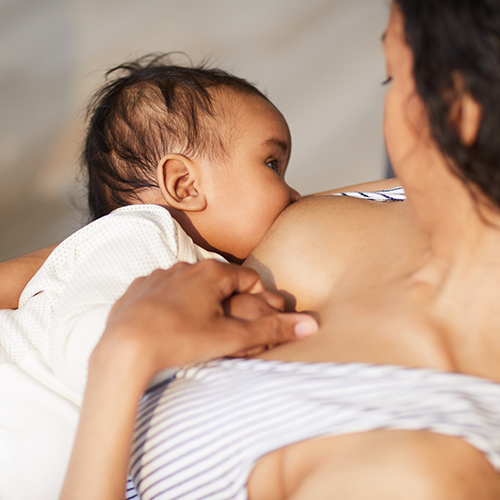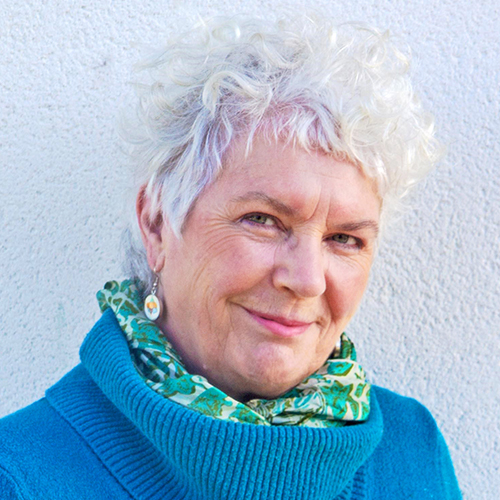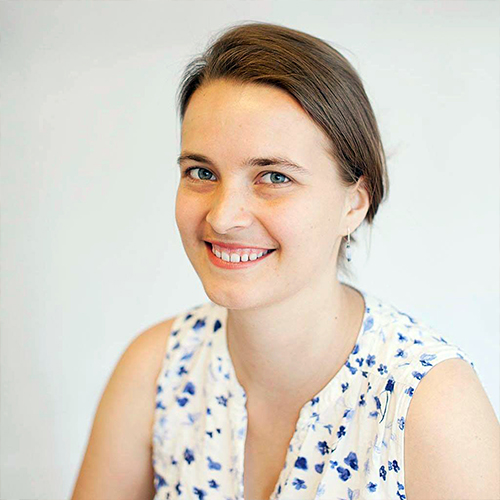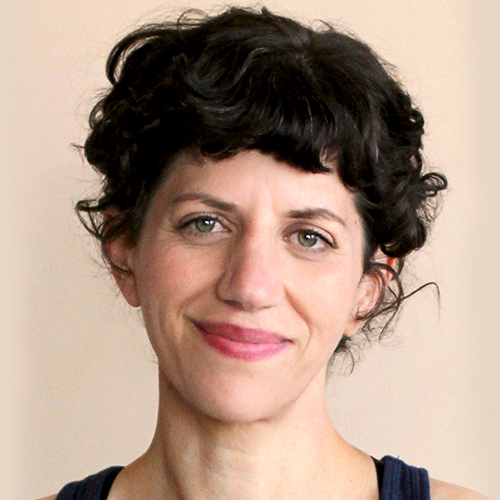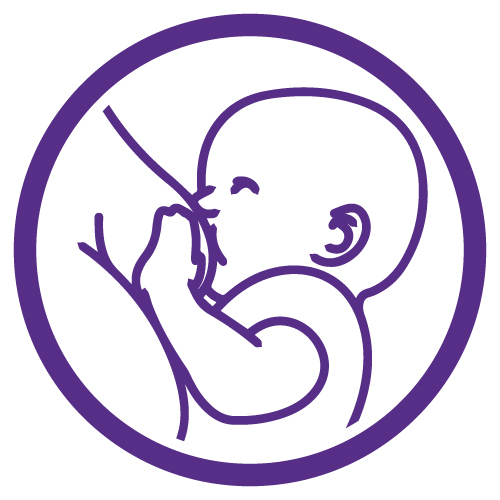 IBCLC Detailed Content Outline: Psychology, Sociology, and Anthropology Focused CERPs - Section V
IBCLC Detailed Content Outline: Psychology, Sociology, and Anthropology Focused CERPs - Section V
Access CERPs on Psychology, Sociology, and Anthropology for the IBCLC Detailed Content Outline recertification requirements. Enjoy convenient on-demand viewing of the latest Psychology, Sociology, and Anthropology focused IBCLC CERPs at your own pace.
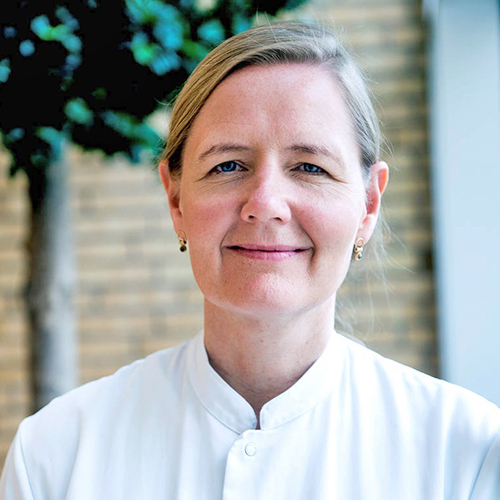
Reducing Cesarean Rates Through Teamwork and Innovation: A Case Study From Denmark

Kamilla Gerhard Nielsen is as obstetrician and psychotherapist part of the delivery unit in Aabenraa in Southern Denmark. A unit that has worked towards minimizing intervention in a safe environment with good outcome for mother and child. After joint effort from doctors and midwifes the department now has a cesarean section rate of 13 %, which is the lowest in Denmark. The rate of elective cesarean is 3 % and the unit has a high rating of satisfaction in Denmark from women giving birth.
Kamilla teaches with Obstetriwise.dk in several countries on the Upright Breech Birth, Fear of Childbirth and Occiput Posterior workshops. All theoretical and practical workshops with the aim of reducing unnecessary intervention in childbirth.
Topic: Reducing Cesarean Rates Through Teamwork and Innovation: A Case Study From Denmark - [View Abstract]
The cesarean delivery rate in America has increased steadily from 5% to 30-32% over the last 50 years, along with an increase in costs as well as short- and long-term maternal, neonatal and childhood complications. In Denmark, extensive teamwork between obstetricians and midwives has succeeded in reducing the cesarean section rate at the Hospital of Southern Jutland (SHS). Ten initiatives were implemented over eight years from 2010 to 2018. The department focused on natural childbirth, teamwork, vaginal breech birth, VBAC and only performing cesarean section (CS) when medically indicated.
After implementation of the initiatives at SHS the rate of elective CS decreased from 8% to 3%, emergency CS stable at 13%, and the overall CS rate decreased from 20% to 16% in 2021. In comparison the national rate went from 21% to 19%.
These reductions were made without any significant increase in birth complications such as instrumentation at vaginal delivery, low pH or low Apgar scores. One of the biggest changes at SHS is the rate of vaginal birth after previous cesarean section. The department has a team working to support women with fear of childbirth by making specific birthing plans. The department shares a belief that a good vaginal birth experience is better than an elective cesarean if the women feels safe.

Reducing SIDS Risks Whilst Promoting Breastfeeding

Peter has a background in Medical Statistics and a particular interest in infant and childhood epidemiology. Born in Manchester, England, he studied Mathematics (BSc Hons) and Medical Statistics (MSc) before moving to Bristol where he completed his doctorate (Epidemiology of Sudden Infant Death Syndrome) in 1998. From his work on several major observational studies he is a recognised expert with over 100 publications in the SIDS field and was made an honorary fellow and advisor to UNICEF (UK) on infant care practices in 2009. In 2014 the Queen’s Annual Prize for Further and Higher Education was awarded to the University of Bristol based on Peter and his colleague Peter Fleming’s contributions in this field. He is the elected Chair of the International Society for the study and prevention of Perinatal and Infant Death (ISPID) and chair of the epidemiological working group. He is also a senior consultant methodologist for both the University of Bristol Trials Unit and the NIHR Research Design Service. He lives with his partner Helen and two sons, Jacob & Sam, aged 19 and 21 years.
Although the evidence suggests that promoting breastfeeding will reduce the risk of SIDS, some of the other risk-reduction advice given to parents seems counter-intuitive in terms of enabling breastfeeding. This talk will take a closer look at the epidemiological evidence (or lack of it) surrounding the promotion of dummy use, putting babies to sleep in cardboard boxes, the divergence in public health approaches to hazardous sleeping environments and the impact this may be having on international SIDS rates.


Cecília Tomori is Associate Professor and Director of Global Public Health and Community Health at the Johns Hopkins School of Nursing with a joint appointment at the Johns Hopkins Bloomberg School of Public Health. She is a Hungarian American anthropologist and public health scholar whose work investigates the structural and sociocultural drivers that shape health, illness and health inequities. Dr. Tomori is an internationally recognized expert on breastfeeding, infant sleep and maternal child health.
During the COVID-19 pandemic, she has supported numerous organizations focused on maternal child health and health equity and advocated for equitable pandemic policies. She has authored three books on breastfeeding and reproduction, and published numerous articles on a range of public health and anthropological topics.
Topic: Resolving Cultural Conflicts in Nighttime Breastfeeding and Infant Sleep - [View Abstract]
Nighttime breastfeeding and proximate mother-infant sleep play a crucial role in sustaining lactation but present challenges for parents in settings where solitary infant sleep is the norm, and bedsharing is viewed as controversial and inherently dangerous. While separate parent-child sleep arrangements are a relatively recent cultural invention, they have become the dominant cultural norm, which also shapes medical infant sleep guidance in the U.S. and other similar settings. Recent breastfeeding promotion efforts, however, conflict with these cultural and medical imperatives for separate sleep. As more parents breastfeed, they find themselves falling asleep next to their babies. Some may fall asleep on unsafe surfaces in their attempt to avoid bedsharing, while others regularly bedshare in secret to avoid social stigma and other repercussions. To ensure both safety and wellbeing for infants and families, an integrated approach to nighttime breastfeeding and infant sleep will be recommended that incorporates evolutionary and cross-cultural perspectives.

View Details / Enroll

View Details / Enroll

Resolving Ethical Dilemmas Using a Qualitative Study and Case Examples

Joy Noel-Weiss RN IBCLC is an assistant professor in the School of Nursing, Faculty of Health Sciences, University of Ottawa. Dr. Noel-Weiss researches breastfeeding and human lactation. Professor Noel-Weiss' doctoral research study was titled Relationship Between Intravenous Fluids Given to Women During Parturition and Their Breastfed Newborns' Weight Loss. Her Masters' research was a randomized controlled trial testing a prenatal breastfeeding workshop designed to increase maternal breastfeeding self-efficacy. For future research, Dr. Noel-Weiss is developing tools to measure infant feeding patterns and to measure clinicians' confidence in their ability (i.e., their self-efficacy) to support individuals who choose to breastfeed.
In addition to these quantitative studies, Dr. Noel-Weiss recently completed qualitative research about ethical dilemmas and lactation consultants and about mothers' experiences using baby scales in their homes. Currently, Dr. Noel-Weiss works with a research team as the principal investigator on a research study titled Transmasculine Individuals' Experiences with Pregnancy, Birthing and Feeding Their Newborns. The study is funded with an operating grant from the Canadian Institutes of Health Research - Institute of Gender and Health.
Dr. Noel-Weiss chairs the International Lactation Consultants Association's Ethics and International Code Committee and co-chairs the uOttawa School of Nursing's working group for joint appointees and adjuncts. She has a cross appointment to the Ottawa Hospital and is a member of The Ottawa Hospital Nursing Research Work Group. Recently, Dr. Noel-Weiss became a member of the Champlain Maternal Newborn Regional Program's Breastfeeding Promotion Committee.
In this session, Professor Noel-Weiss explains and defines bioethics, principles of bioethics, and ethical dilemmas. She presents results from her research study about IBCLCs and ethical dilemmas and uses case studies to demonstrate how to identify and resolve ethical dilemmas.
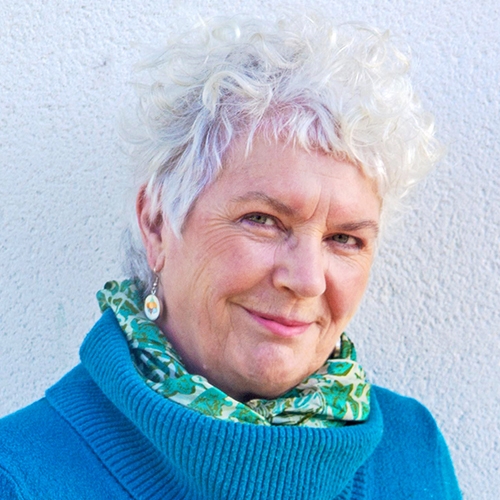
Resolving Labour Dystocia Through Improved Understanding of Birth Biomechanics

Molly O’Brien is an experienced midwife, with more than 20 years of clinical practice and has attended over a thousand births. She is also a hypnobirth and birth preparation teacher, an associate university lecturer, has created courses for midwives, campaigned for midwife led birth units and been a passionate student and enabler of normal physiological birth. She has worked in all areas of midwifery. Her favorite work was in the home environment and a Midwife Led Birth Unit. It allowed her to attend hundreds of undisturbed physiological births. It also gave her the opportunity to make a systematic exploration of midwifery skills and observations that can help resolve long difficult labours caused by a suboptimal position. The techniques and strategies that emerged from this time helped her revolutionize her own practice. She began to regularly witness dramatic progress as she put them to use in “difficult labours”. Now she teaches the course she developed for Birth Professionals, ‘Biomechanics for Birth’. She also taught for a master's course at the City of London College and runs a 3000 strong Facebook group Biomechanics for Birth for birth and women’s health professionals that carries a lively and informed discussion on a wide range of women's health issues.
In order to resolve labor dystocia in an effective and holistic manner, a deeper understanding of pelvic anatomy and physiology is required. Pelvic dynamics, the mechanical relationship between the pelvis and the rest of the body, and the dynamic interaction of the mother/baby dyad offer the chance to view birth through different eyes. This knowledge can help the health care provider to recognise activities and lifestyles that increase the chances of labour dystocia. Furthermore, this understanding will help providers identify signs of a mechanical disruption during the birth process. This presentation will offer timely techniques and positions, based on the principles of biomechanics, that increase space in the pelvis and avoid medical intervention.

View Details / Enroll
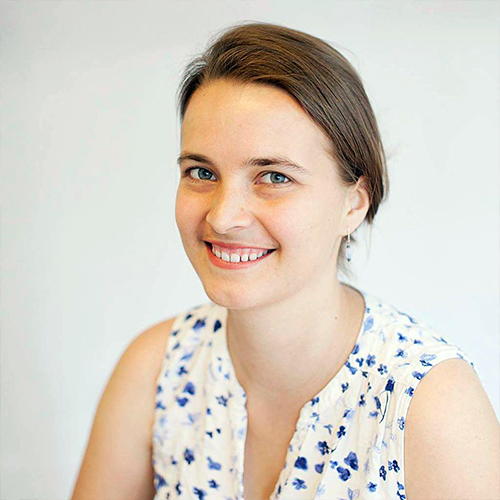

Molly Dutton-Kenny is an American & Canadian midwife. Trained in the USA in community homebirth midwifery, she now makes Canada her home and practices as a Registered Midwife with her loving family & community. She supports education for midwifery students through National Midwifery Institute, and community education around full spectrum pregnancy loss and abortion, respectful pelvic exams, and midwifery-based management and support of these experiences, centering home and holistic medicine as options for most people. You can read more about her work at www.mollyduttonkenny.com.
Pelvic Exams are so commonplace in midwifery practice that we often fail to appreciate their significance in our client’s lives. Pelvic exams have the potential for both trauma and trust-building in the midwife-client relationship.
Trauma manifests in our clients lives and bodies in a myriad of ways. Statistically, a majority of our clients have experienced various direct traumas in their lives, with a significant portion focused on pelvic trauma & assault. Additionally, clients hold the epigenetic trauma from historical wrongs in gynecology and treatment of bodies in various lineages as a result of white supremacy and toxic patriarchy.
All bodies deserve respectful care. When done carefully, pelvic exams have the potential to be safe, trust-building experiences with the benefit of seeking key medical information. Together, we will interrogate the common pelvic exam from a trauma-informed lens and consider our practices carefully. We will build strategies for respectful pelvic exams, including managing pain & anxiety in clients, what to do when clients do (and don’t!) disclose past trauma, avoiding triggers, and consider modifications to our own practices.
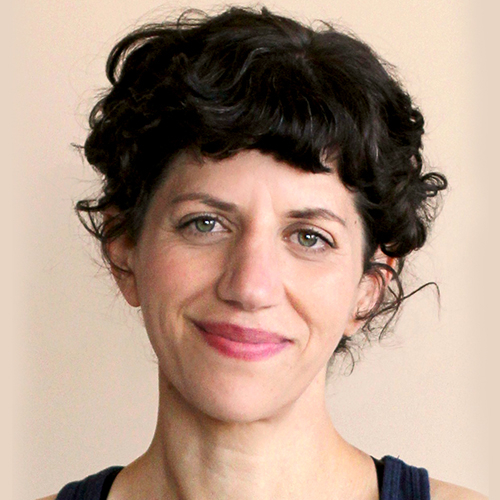
Returning to Sex Postpartum: Expectation, Preparation, Treatments for Pain and Dysfunction

Sonia is an occupational therapist specializing in pelvic floor therapy with a focus on the perinatal population.
In her practice, she uses awareness training, targeted exercise, breath work, yoga, manual therapy and lifestyle modification to help her clients find relief from conditions such as pelvic girdle pain, prolapse, dyspareunia, incontinence, constipation, diastasis recti and general deconditioning connected to pregnancy and postpartum. Sonia is skilled in helping her clients navigate the psychological and social impact that pelvic floor issues have on relationships and day to day life. In addition to her work as a pelvic floor therapist, Sonia teaches pre/postnatal yoga classes and leads new parent support groups. She is also a part of the continuing education program at Ancient Song Doula Collective and teaches workshops on the pelvic floor for Doulas and pregnant and postpartum people.
Sonia graduated from SUNY Downstate with a Master’s of Science in Occupational Therapy and received a Bachelor of the Arts in Dance from Oberlin College. Sonia trained in pelvic floor rehabilitation with Herman & Wallace Institute and Lindsey Vestal of the Functional Pelvis.
Sonia lives in Brooklyn, New York with her husband and two children.
Pain with sex and sexual activity postpartum is common. This can have a profound impact on quality of life and relationships during a period of time when birthing people are already managing seismic changes to both identity and intimate relationships. Birthing people deserve education around what to expect, how to prepare and how to address any discomfort and pain with return to sex postpartum. Too many providers are not given knowledge, tools and strategies to support their patients with resuming this important activity of daily living. In this interactive and embodied presentation, I will share how to talk about the return to sexual activity with your patients, what preparation may be helpful, and strategies for addressing and treating different categories of sexual pain.
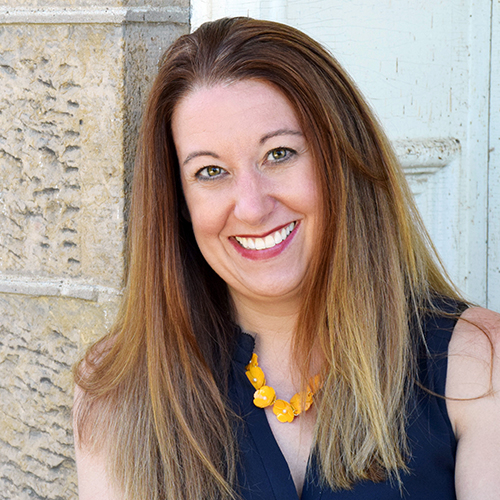
Scent-Sational Connections: The Role of Olfaction in Development

Gretchen Becker Crabb is an Occupational Therapist, Licensed Professional Counselor, and Endorsed Infant Mental Health Therapist. She is also a Certified Lactation Counselor, La Leche League Leader, and Brazleton Newborn Observation (NBO) trainer.
Gretchen’s passion is rooted in fostering lifelong relationships and connection through co-regulation in pregnancy and beyond. Her unique approach to lactation support and therapy is rooted in culturally attuned sensory, somatic, and trauma-informed mental health techniques.
Gretchen owns and operates a private practice in Madison, Wisconsin. For 21 years, she has provided developmental, trauma, feeding, and attachment support for tiny humans and their caregivers in birth to three, preschool, private practice, and peer group settings. Gretchen is an international speaker, reflective supervisor, and infant mental health consultant. In these roles, she offers compassionate, experiential, and reflective holding spaces for professionals. She is a proud United States Air Force spouse and mother of three boys.
Topic: Infant Mental Health: What Does It Look Like in Practice? - [View Abstract]
Topic: Scent-Sational Connections: The Role of Olfaction in Development - [View Abstract]
Topic: Sensory Processing and Breast/Bodyfeeding: Using Co-Regulation to Support the Feeding Relationship - [View Abstract]
Topic: Vestibular Processing: Using the Sixth Sense to Support Lactation and Parent/Infant Relationships - [View Abstract]
Though so obvious, the sense of smell is quite integral to well-being and human connection. As the loss of smell has been highlighted as one of the main symptoms of COVID, it invites a deeper understanding of the functional impacts of olfactory differences in children and caregivers. In this presentation, we will learn about the cultural history and neurological basis of olfaction. We will explore how smell plays a role in feeding, interpersonal relationships, and safety as well as olfactory strategies to promote physical health and co-regulation.
IMPORTANT: In this presentation we will do experiential work, so please have a journal, the following scents and food available:
One Citrus Scent (e.g. lemon, lime, orange)
One Woodsy/Earthy Scent (e.g. leaves, rocks, soil)
One article of clothing worn by someone you are close to (e.g. spouse, child, close friend, parent)
Carrot or other raw vegetable to eat
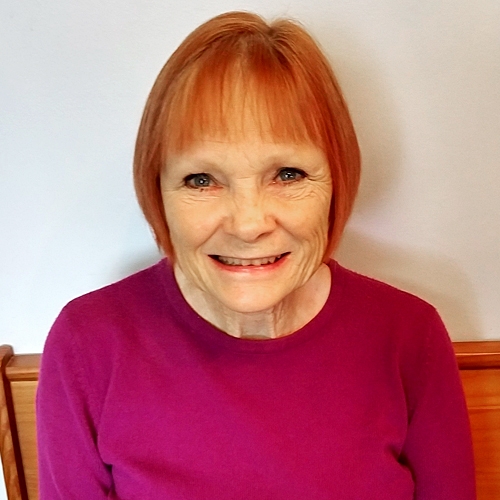
Sensory Integration and Breastfeeding

Nancy has been providing breastfeeding help and support for 40 years and has been a national speaker for 30. She has been a perinatal educator and consultant since the late 1970’s. Her second career is that of a Marriage and Family Therapist. Her passion is to explore the larger picture of the mother-baby dyad in the context of the breastfeeding relationship.
Topic: Teens and Breastfeeding - [View Abstract]
This session will look at sensory integration problems, now known as Sensory Processing Disorder. How might these difficulties impact the breastfeeding dyad and the family? We will describe this and present ideas on how to minimize the problems and support breastfeeding.

Sensory Processing and Breast/Bodyfeeding: Using Co-Regulation to Support the Feeding Relationship

Gretchen Becker Crabb is an Occupational Therapist, Licensed Professional Counselor, and Endorsed Infant Mental Health Therapist. She is also a Certified Lactation Counselor, La Leche League Leader, and Brazleton Newborn Observation (NBO) trainer.
Gretchen’s passion is rooted in fostering lifelong relationships and connection through co-regulation in pregnancy and beyond. Her unique approach to lactation support and therapy is rooted in culturally attuned sensory, somatic, and trauma-informed mental health techniques.
Gretchen owns and operates a private practice in Madison, Wisconsin. For 21 years, she has provided developmental, trauma, feeding, and attachment support for tiny humans and their caregivers in birth to three, preschool, private practice, and peer group settings. Gretchen is an international speaker, reflective supervisor, and infant mental health consultant. In these roles, she offers compassionate, experiential, and reflective holding spaces for professionals. She is a proud United States Air Force spouse and mother of three boys.
Topic: Infant Mental Health: What Does It Look Like in Practice? - [View Abstract]
Topic: Scent-Sational Connections: The Role of Olfaction in Development - [View Abstract]
Topic: Sensory Processing and Breast/Bodyfeeding: Using Co-Regulation to Support the Feeding Relationship - [View Abstract]
Topic: Vestibular Processing: Using the Sixth Sense to Support Lactation and Parent/Infant Relationships - [View Abstract]
Well-organized sensory systems provide the foundation for relational feeding. Sensory interactions communicate the story of the dyad, a window into strengths and challenges. Encouraging families to attune to their own sensory preferences and that of their infant can significantly influence the dynamics of the body/breastfeeding relationship. This presentation will explore the basics of sensory processing as it relates to provider, parent, and infant co-regulation in the context of body/breastfeeding and lactation support. We will explore basic neurology and cultural influences of the 8 senses though dyadic examples. Ways in which subtle signs of sensory disorganization and sensory processing disorder present in body/breastfeeding relationships will also be reviewed. Participants will learn practical strength-based sensory strategies to support families in the beginning stages of life, feeding, and beyond.




